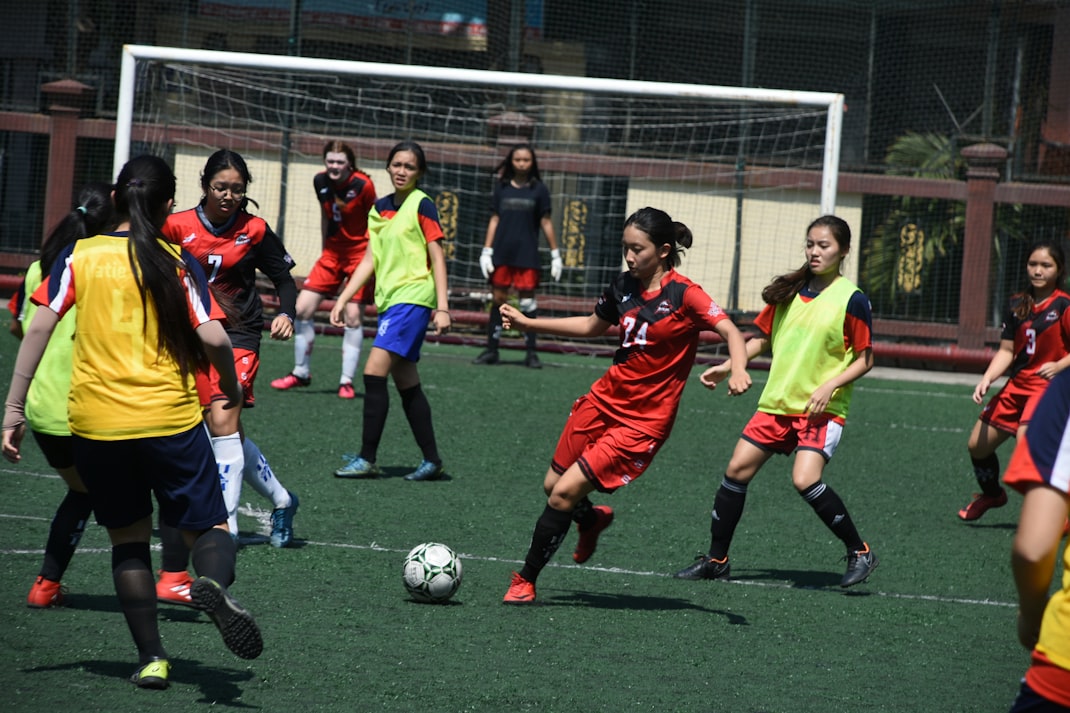The landscape of soccer, an age-old sport with deep roots and a wide-reaching canopy of global fans, is constantly in flux. As a soccer coach, you stand at the forefront of this evolution, tasked with not only shaping individual players but also the very fabric of the game itself. With advancements in technology, shifts in player dynamics, and the unending quest for that coveted title, coaching today has transcended traditional boundaries.
It now requires a multifaceted approach that encompasses more than just the physical and tactical training of yesteryear. This article seeks to delve into the modern challenges faced by soccer coaches and the strategies that can help turn these potential stumbling blocks into stepping stones for success.
The Multi-Dimensional Role of the Modern Coach
Gone are the days when a coach's role was confined to the pitch. Today's soccer coaches must wear many hats: they are mentors, strategists, and sometimes even confidants. They must navigate the delicate balance of fostering team spirit while ensuring individual players reach their potential. In this intricate dance, psychological insight becomes as vital as physical training. Understanding the mental well-being of players can be the difference between a well-oiled machine and a fragmented group of individuals.
Technology: The Game-Changer
Another frontier in the coaching landscape is technology. Video analysis, fitness tracking apps, and advanced statistical tools have opened new pathways for enhancing player performance. Coaches can now dissect game footage with their teams, pinpointing exact moments for improvement or praise. Fitness trackers go beyond what the eye can see, providing concrete data on a player's physical condition and enabling personalized training regimens. Embracing these technological tools can be a game-changer, but it requires coaches to be continuously learning and adapting.
The Shift in Player Development
The way players are developed has also undergone significant change. The rise of youth academies with a focus on cultivating homegrown talent has put increased pressure on coaches to identify and nurture potential from a younger age. The transition from academy to the first team is a delicate process, and as a coach, you are responsible for ensuring that this transition is as smooth as possible. It not only includes technical training but also mentoring young athletes to cope with the pressures of professional soccer.
Navigating Commercial Influences
In today’s soccer world, the influence of commercial interests cannot be ignored. Sponsorships and partnerships are a reality of the game and can sometimes impose additional pressures on teams and coaching staff. For instance, a major sponsorship deal with FanDuel Sportsbook might necessitate certain public relations commitments that can distract from training and preparation. As a coach, part of your job is to manage these influences, ensuring that the team remains focused on what happens on the pitch.
Maintaining Player Health and Managing Injuries
An often underemphasized yet critical aspect of modern soccer coaching is the emphasis on player health and the adept management of injuries. As the pace of the game quickens and the season calendars become more congested, players are at a higher risk of injury than ever before. Coaches must be knowledgeable about injury prevention, working closely with sports science professionals and physiotherapists to create training programs that not only push players to their limits but also safeguard their physical well-being.
It's a fine line to walk—balancing rigorous training with adequate rest and recovery. Additionally, when injuries occur, a coach's role extends beyond the field to ensure that players receive the proper care and are mentally supported through their recovery process. This holistic approach to player health can significantly influence a team's performance and longevity throughout a demanding season.
Cultural Sensitivity and Team Cohesion
Soccer teams are increasingly diverse, bringing together players from different nations, cultures, and backgrounds. Coaches must be culturally sensitive, fostering an inclusive environment where everyone can thrive. It’s about building a cohesive team where differences are celebrated and leveraged to create a richer and more dynamic team culture.
Adapting to Rule Changes and Game Evolution
The rules of soccer are not static, and adjustments are made frequently to improve the flow and fairness of the game. Coaches must stay abreast of these changes and adapt their strategies accordingly. It’s not just about understanding the new rules but also about anticipating how these will affect the game's tactics and preparing the team for these shifts.
Conclusion
The role of a soccer coach in the modern age is complex and challenging. With the integration of technology, the delicate art of player development, and the added layers of commercial and cultural influences, coaching today is more demanding than ever. Yet, it's these very challenges that make the profession deeply rewarding.
By embracing continuous learning, fostering adaptability, and nurturing a culture of resilience and inclusivity, a coach can steer the team towards excellence. Remember, the most significant victories often lie not in a title or a trophy but in the growth you inspire in your players both on and off the field.


















